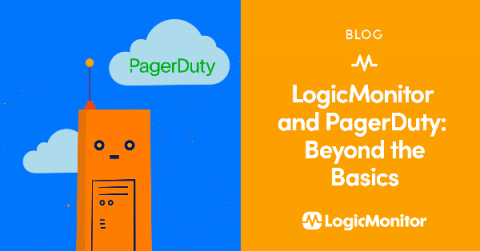Operations | Monitoring | ITSM | DevOps | Cloud
Latest News
Improving Postmortem Practices with Veteran Google SRE, Steve McGhee
What Is MTTF? Mean Time to Failure Explained in Detail
“What is MTTF?” That’s the question we’ll answer with today’s post. Yep, the article’s title makes it evident that the acronym stands for “mean time to failure.” But that, on its own, doesn’t say anything. What does “mean time to failure” actually mean? Why should you care? That’s what today’s post covers in detail.
Sensitive Medical Data Hacked by Unsophisticated Software
There’s a solid rationale behind replacing antiquated technology, as they fail to keep pace with how the healthcare environment is evolving. One such invention is the good, old pager. Recently, the U.K.’s National Health Service Trust (NHS) was on the radar when the organization’s sensitive medical data was hacked by an individual in North London. The malicious party intercepted radio waves, converting it into legible text on his computer monitor.
AIOps Is Most Successful Analytics Method for Supporting IT
The number and variety of AIOps benefits far outweigh the cost of implementation. Research from EMA highlights that 81% of enterprises have received value that exceeds costs.
IDC Finds Substantial ROI for Enterprises Using PagerDuty for Digital Operations Management
In order to keep digital services running around the clock, teams need to be able to solve problems faster—or, ideally, in real time. Many vendors claim to provide value and help organizations bolster their digital operations management.
Root Cause Changes: Real Examples of Modern Root Cause Analysis from our Beta Customers
Root Cause Analysis (RCA) is an all-encompassing process. It is usually very complicated and often requires many people with many different skills – all trying to tackle an incident to determine what happened, when, why, how and ultimately who (to blame). There is, however, secret sauce today that can help solve many issues before a “full-scale” RCA process is initiated – and that is Root Cause Changes (RCC).
Cherwell & PagerDuty: Getting Real (Time) About Digital Transformation
Digital transformation may be the largest shift the IT industry will experience in a lifetime. It’s a term used throughout the tech industry and in various contexts. Gartner defines it as “…anything from IT modernization (for example, cloud computing), to digital optimization, to the invention of new digital business models,” which has massive implications for almost every organization.
LogicMonitor and PagerDuty: Beyond the Basics
Out-of-the-box integrations are great, and they help organizations see an immediate return on investment when the technologies they have invested in work together seamlessly. However, a little customization to these integrations can dramatically increase productivity and reduce mean time to resolution. Here we will address a couple of best practices and customizations that can take your PagerDuty and LogicMonitor integration to the next level.
The importance of GameDays
GameDays were first coined by Amazon’s “Master of Disaster” Jesse Robbins when he created them intending to increase reliability by purposefully creating major failures on pre-planned dates. Game Days help facilitate the values of chaos engineering. Chaos engineering is the disciplined practice of injecting failure into healthy systems. With modern IT services becoming increasingly sophisticated continuously changing systems, outages are inevitable.











